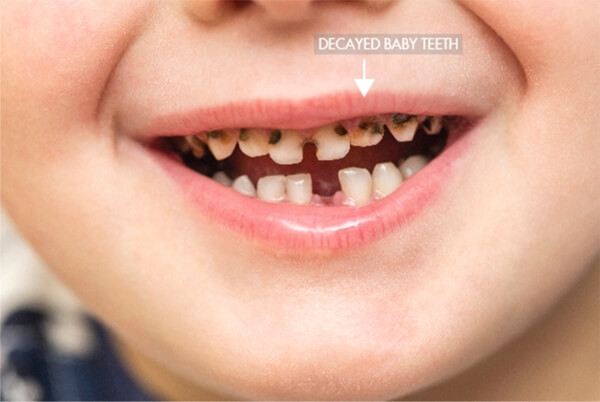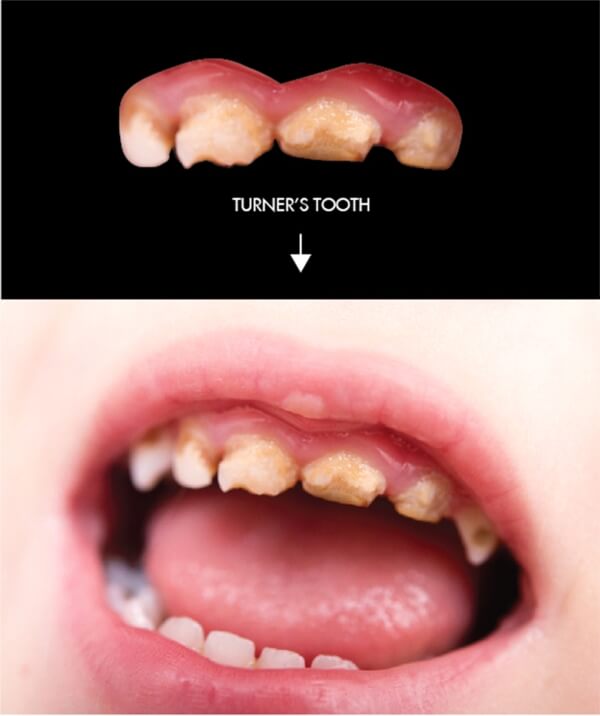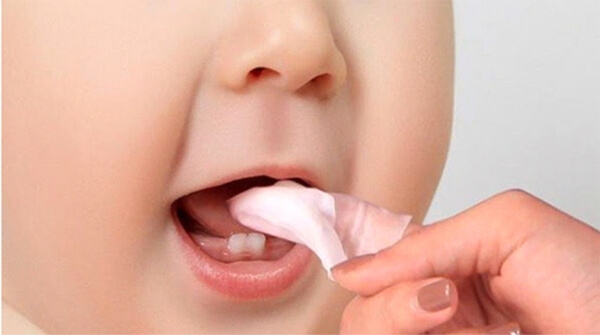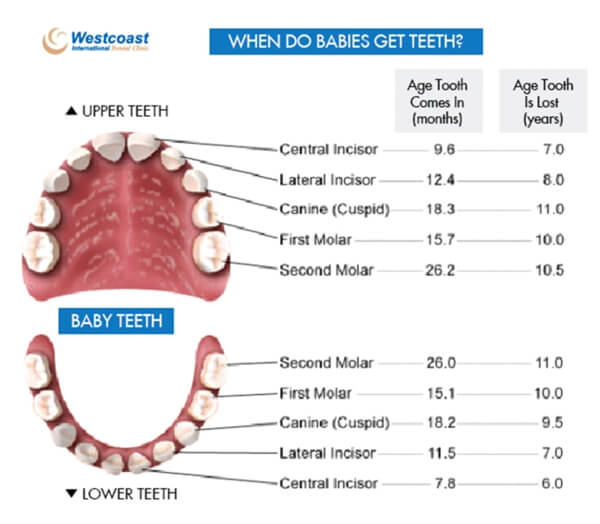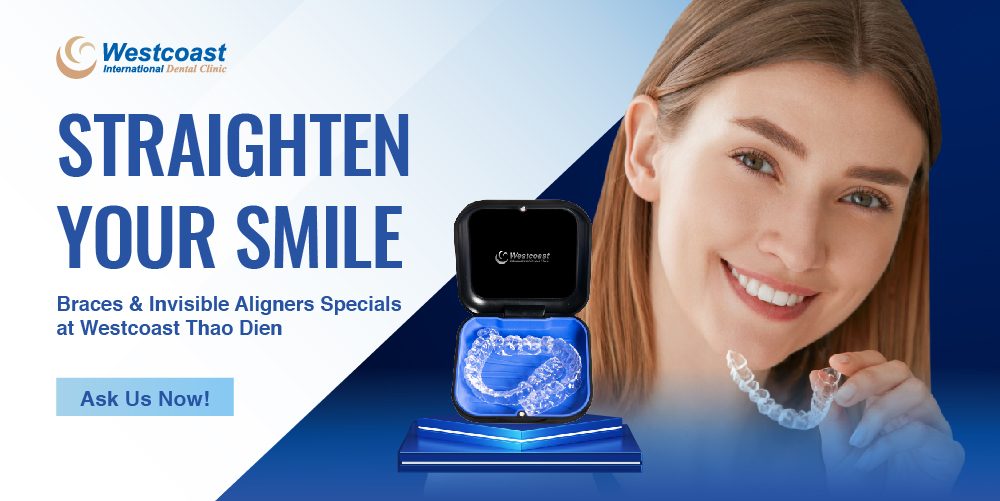Deciduous Teeth (Baby Teeth): When They Come and When They Go
The Top Five Facts Parents Should Know About Deciduous Teeth (Baby Teeth/ Primary Teeth)
It’s a common misconception that deciduous teeth (baby teeth) are not very important, given that they fall out so early in life and are quickly replaced by permanent adult teeth. The fact is, however, that both deciduous teeth (primary teeth) and permanent teeth require the same level of care. Parents who aren’t aware of this can inadvertently cause long-lasting problems to their children’s oral health and the severity of pain and suffering that this can cause children.
The WHO reported in 2020 that more than 530 million children suffer from cavities in their primary teeth (deciduous teeth). The fact is that if a child has a badly infected baby tooth, the underlying adult tooth possibly can become damaged too. This damage doesn’t become evident until the adult tooth emerges years later, and the deterioration of the tooth structure can appear quite noticeable compared with the other adult teeth.
To ensure that you are fully informed about the emergence and care of deciduous teeth (Baby Teeth), read the following five questions and the answers that you may need to know to help protect your child’s optimal oral health.
1. When do a child’s first teeth emerge?
Deciduous teeth (baby teeth) are expected to begin to erupt (break through the gums) when infants reach the age of six months. The first teeth to emerge are usually the bottom incisors, followed by the top pair – and once the top four teeth are in place, the rest of the teeth will gradually fill in the gaps until a total of 20 teeth are in place by the time the child is around three.
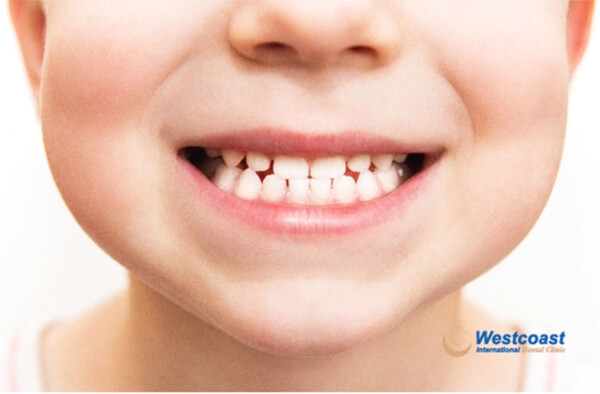
2. What dental concerns are associated with deciduous teeth (baby teeth)?
The major concern for dentists – as it should be for parents – are infections associated with decayed baby teeth (primary teeth). The result can lead to loss of appetite, low weight gain, pain, fever and loss of ability for your child to concentrate in school. The amount of physical pain and emotional stress to a child can be intense, leaving both child and parents sleepless for days. Like adult teeth, deciduous teeth are susceptible to bacterial build-up that eats away the tooth enamel and can cause serious decay. This is often most evident when a baby has unusually bad breath, caused by the oral bacteria that release bad-smelling hydrogen sulfide in the mouth.
Babies also tend to be habitual thumb suckers, as the feeling of sucking a thumb is very comforting to a small child. While this habit usually fades away, it can contribute to abnormal tooth positioning and development if it persists.
3. What physical problems can decayed deciduous teeth (baby teeth) cause?
The most common type of physical damage caused to adult teeth by infected baby teeth (deciduous teeth) is called hypoplasia. This is when the shiny white enamel of the tooth is significantly reduced, causing a white and chalky appearance. Another common defect that can occur is called Turner's tooth, which often occurs when the baby tooth was heavily decayed, inflaming the surrounding tissue and impairing the development of the permanent tooth.
It’s also well known that our teeth play an important role in the development of speech. As a child’s ability to speak emerges, his or her teeth influence the movements of the tongue and jaw that are responsible for forming and articulating clear sounds in the mouth. According to verified research, the premature removal or decay of deciduous teeth (baby teeth) – especially the front teeth – can negatively impair the development of normal speech, resulting in incorrect speech patterns such as lisps and a blurring between "s" and "z" sounds.
Early tooth loss can also result in misalignment of the erupting adult teeth, particularly if these teeth are lost before a child is six years old. Permanent teeth that grow in misaligned positions can necessitate orthodontic treatments later in life to correct the problem; until that corrective treatment is obtained, the child’s bite is likely to be altered and impaired – sometimes leading to visible facial misalignment.
4. How should a child’s teeth be taken care of?
Caring for a baby’s teeth isn’t much different to caring for adult teeth. With babies, wipe their gums with a light, clean cloth after eating until their baby teeth erupt. After that, lightly brush the teeth, and when they’re old enough, teach your children to brush regularly – twice a day at morning and night – and how to use dental floss.
One very common natural mineral that can help protect teeth in general is fluoride. This is very helpful in preventing or slowing the formation of dental cavities, protecting the teeth from damage and helping to rebuild enamel. There is widespread scientific research over the past 60 years to detail the benefits of fluoride that outweighs risks associated with fluoride overdose, which can be prevented. Scientific dental researchers have determined that drinking fluoridated water is safe for children and reduces tooth decay by up to 25 percent. A child can also use fluoridated toothpaste from the age of three.
5. When do they fall out?
Deciduous teeth (baby teeth) are gradually replaced by permanent teeth between the ages of six and twelve. It’s not unusual for tooth replacement to begin slightly early or continue until slightly later. As with deciduous teeth, the first adult teeth to erupt should be the incisors, with the rear molars the last to appear. By the time your child is a teenager, they will have 32 permanent adult teeth. Note that the first molars (sixth position) come in at the age of six and are the most frequently damaged teeth, people have because they are very susceptible to early decay at this age. A healthy oral environment with good brushing habits before the age of six is necessary to prevent early damage to these important teeth.
Occasionally, something goes wrong and the child’s jaw over-retains a baby tooth. Sometimes, the adult tooth is congenitally missing, meaning it simply isn’t there. This has been shown to occur in up to 11.8% of children. Another relatively rarer situation is where a permanent tooth has erupted on one side of the mouth – while on the opposite side, the baby tooth remains in place for more than six months. This situation should be reviewed by a dental professional. In certain cases, the dentist may suggest a tooth extraction be performed.
Contact Westcoast International Dental Clinic if you have any concerns about your child’s baby teeth, and make an appointment at our clinic and we would be happy to be your partner in ensuring the best and optimal oral health for your child.
Read More:
Partners:


